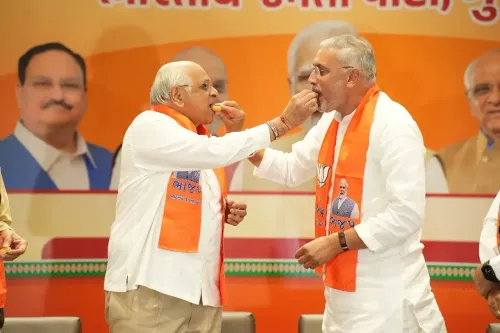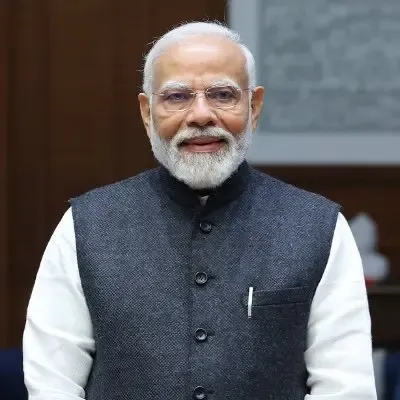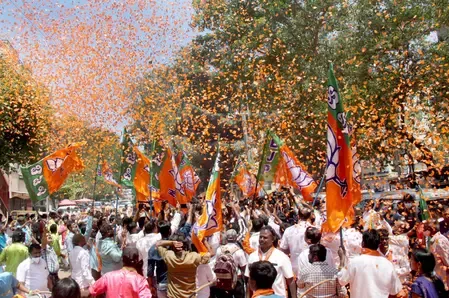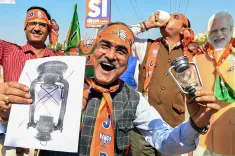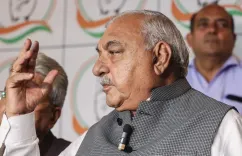What Was the Debate on Vanishing Silver in Britain and India's Wealth Drain?

Synopsis
Key Takeaways
- The 1806 debate revealed the exploitative nature of colonial trade.
- India's resources were seen as a source of profit for Britain.
- The 'Drain of Wealth' concept illustrates systemic resource extraction.
- Parliamentary discussions often lacked transparency regarding colonial governance.
- The economic impact of colonialism left a legacy of debt and poverty in India.
New Delhi, Sep 28 (NationPress) On a frigid Friday in March 1806, a seemingly technical discussion took place in the British House of Commons regarding shipping statistics and trade regulations. For the parliamentarians, this was a matter of national significance, profit, and the effective management of their "vast eastern dominion". For us in India, whose land, labor, and resources were being deliberated upon from afar, the debate represented something much more profound.
It offered a stark insight into the mindset of our rulers—a dispute among masters over the allocation of our wealth, an unintentional acknowledgment of the substantial drain on our resources, and a clear exhibition of the opaque and unaccountable system that dictated our lives.
The motion presented by Mr. Alderman Prinsep aimed to reveal documents detailing the "excessive proportion of trade conducted by neutral vessels" in our ports. His grievance was not that India was being exploited, but rather that Britain was not receiving its fair share of the spoils.
He mourned the fact that the British segment of Indian commerce was an "insufficient recompense" for the population and wealth that Great Britain annually expended to sustain its dominion in India.
From our viewpoint, this argument is deeply revealing. The cost of our subjugation—the British military, civil administration, and naval protection—was framed as an "expense" for which our commerce was expected to yield a "recompense".
The discussion was not about partnership; it was about the profitability of an imperial enterprise. The Alderman alarmingly presented figures showing numerous American, Portuguese, and Danish ships filling the harbor of Calcutta, while the British share dwindled.
For the British parliamentarian, this was a national loss. For us, it was merely a shift in the flags of the vessels transporting our wealth away.
The Paradox of the Vanishing Silver
A particularly enlightening moment in the debate came from Mr. Francis, whose extensive experience with Indian affairs lent significant weight to his words.
He articulated a fundamental truth that our people have always understood: "in any purely commercial interaction between India and Europe, the circumstances of the two parties dictate that the balance of trade must be... immensely in favor of the natives of India".
Our products and goods were in demand; what Europe offered in return held comparatively little value for the masses. Thus, a natural trade should lead to a continuous flow of bullion into India.
Indeed, the figures discussed in the debate seemed to confirm this. Mr. Prinsep noted that in the prior four years, neutral traders had imported over 19 million dollars in bullion into Bengal, in addition to the vast sums sent by the East India Company.
However, Mr. Francis then revealed the devastating paradox at the core of the colonial economy: despite this massive influx of silver, there was no circulation of specie in Calcutta. The entire economy of the colonial capital functioned on paper currency—Company notes and bonds issued at high interest.
He posed the crucial question that resonated with our economic plight: "What becomes of all this specie? Is it buried? Is it re-exported? Or how is it utilized? All we know is that it vanishes and disappears as quickly as it is imported".
Here, within the records of the British Parliament, lies an unintended articulation of the "Drain of Wealth". The silver arrived not to enrich India but to pay for the goods that would enrich Britain and other foreign nations.
It was the lubricant for a machine of extraction. The profits from these goods, sold in Europe and America, never returned to our shores.
Instead, the country found itself burdened with a spiraling debt, which ballooned from approximately 11 million pounds when Marquis Wellesley arrived to over 31 million pounds by the time of his departure. The great enigma of the vanishing silver was, from our perspective, no enigma at all. It was the visible symptom of a system designed to siphon the wealth of our land to a distant island, leaving behind a mountain of debt to be settled from our own revenues.
The Politics of Secrecy and the Deflection of Truth
The response of His Majesty’s ministers to this request for information was as revealing as the information itself. A motion for what was termed a "mere custom-house document" was met not with compliance but with evasion. Mr. Secretary Fox, known for his liberal principles, contended that producing the paper would create an "imperfect impression" and that the matter was one of "delicacy" due to ongoing negotiations with the United States. Lord Henry Petty swiftly moved to shelve the discussion by proceeding to the "other orders of the day".
This refusal to provide basic information epitomized the administration in India. It was a system that thrived on absence of transparency. This pattern is consistently observed throughout the parliamentary records.
Brave individuals like Mr. Paull spent months, sometimes nearly a year, battling for documents essential to substantiate charges of criminality against Lord Wellesley, only to encounter constant delays and claims that the documents were too "voluminous" or prejudicial to public service.
This control of information extended to our shores, where the British administration argued that principles of press freedom were "not suitable for India". Any European who dared to publish materials deemed irritating to the natives or critical of the government faced the severe penalty of "immediate embarkation for Europe, without trial, or a hearing, or delay, or preparation".
The deflection of Mr. Prinsep's motion was thus not an isolated occurrence but a reflection of a governing philosophy. Information about the true nature of the Company’s finances, its wars, and its commercial dealings was a closely guarded secret, to be managed and controlled, never freely offered for public scrutiny. The rulers deliberated our fate in secrecy, and by refusing these papers, they only reinforced the iron curtain that separated the governed from the governors.
Conclusion: India as the Prize
Ultimately, the debate of March 14, 1806, stands as a compelling testament to India's status in the world at that time. We were not a partner but a possession. Our commerce was not a source of our own prosperity but a prize to be contested by competing foreign powers—British, American, Portuguese, Danish.
The terms of this commerce were dictated by European wars and diplomatic maneuvers in Washington and Paris. Our internal economy was drained of its lifeblood to fuel their industries, while our rulers refused to even provide a public accounting of the transaction.
While ministers in London spoke of "delicacy" and members of the Company discussed profit margins, the reality in our land was one of escalating debt, vanishing resources, and an increasing tax burden to finance it all.
The arguments of men like Prinsep, although aimed at securing a larger piece of the pie for Britain, inadvertently revealed the rotten foundations of the entire imperial project. And in the unanswered questions of individuals like Francis, we hear the faint, early echoes of the arguments that would one day form the intellectual basis for our long and arduous journey toward self-determination.
(The Author is a researcher specializing in Indian History and contemporary geopolitical affairs)

